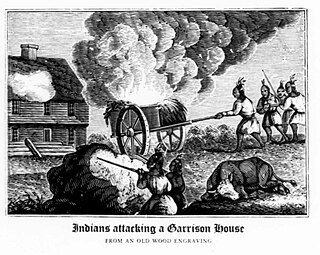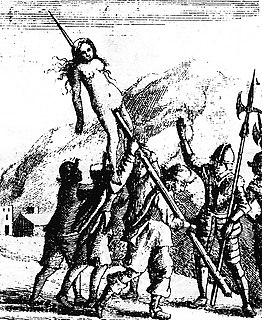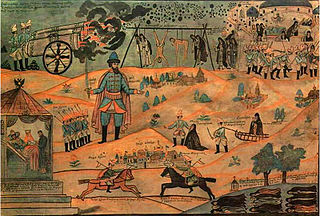 W
WThe Dzungar conquest of Altishahr resulted in the Tibetan Buddhist Dzungar Khanate in Dzungaria conquering and subjugating the Genghisid-ruled Chagatai Khanate in Altishahr. It put a final end to the independence of the Chagatai Khanate.
 W
WThe 1672 to 1678 Franco-Dutch War, also known as the Dutch War, was fought between France and the Dutch Republic. A number of other European states were involved at different times, including the Holy Roman Empire, Spain, England, Brandenburg-Prussia and Denmark-Norway. The 1675 to 1679 Scanian War is sometimes considered a related conflict.
 W
WKing Philip's War was an armed conflict in 1675–1678 between indigenous inhabitants of New England and New England colonists and their indigenous allies. The war is named for Metacom, the Wampanoag chief who adopted the name Philip because of the friendly relations between his father Massasoit and the Mayflower Pilgrims. The war continued in the most northern reaches of New England until the signing of the Treaty of Casco Bay in April 1678.
 W
WPolish-Cossack-Tatar War was the war between the Polish-Lithuanian Commonwealth and the Ottoman Empire over Ukraine. It was one of the aftermaths of the Russo-Polish War (1654–1667) and a prelude to the Polish–Ottoman War (1672–1676).
 W
WPolish–Ottoman War (1672–1676) was a conflict between the Polish–Lithuanian Commonwealth and the Ottoman Empire, as a precursor of the Great Turkish War. It ended in 1676 with the Treaty of Żurawno and the Commonwealth ceding control of most of its Ukraine territories to the Empire.
 W
WThe Revolutions of Tunis or the Muradid War of Succession was a period of troubles and civil wars in Ottoman Tunisia. It ran from the death of the Muradid sovereign Murad II Bey in 1675 until the seizure of power by the Husainid sovereign Al-Husayn I ibn Ali at-Turki in 1705. The belligerents were Ali Bey al-Muradi and Muhammad Bey al-Muradi, their uncle Muhammad al-Hafsi al-Muradi, several Deys of Tunis, the Turkish militia in Tunis and the Dey of Algiers.
 W
WThe Savoyard–Waldensian Wars were a series of conflicts between the community of Waldensians and the Savoyard troops in the Duchy of Savoy from 1655 to 1690. The Piedmontese Easter in 1655 sparked the conflict. It was largely a period of persecution of the Waldensian Church, rather than a military conflict. Joshua Janavel (1617–1690) was one of the Waldensian military leaders against the Savoyard ducal troops.
 W
WThe Second Genoese–Savoyard War (1672-1673) was a short war fought between the Duchy of Savoy and the Italian Republic of Genoa.
 W
WThe Solovetsky Monastery uprising was an uprising of Old Believer monks, known as the Raskol, of the northern Solovetsky Monastery against the policies of Tsar Aleksey I. The uprising involved the siege of the Solovetsky Monastery by the Tsar's forces over the years from 1668 to 1676.
 W
WTrunajaya rebellion or Trunajaya War was the ultimately unsuccessful rebellion waged by the Madurese prince Trunajaya and fighters from Makassar against the Mataram Sultanate and its Dutch East India Company (VOC) supporters in Java during the 1670s.